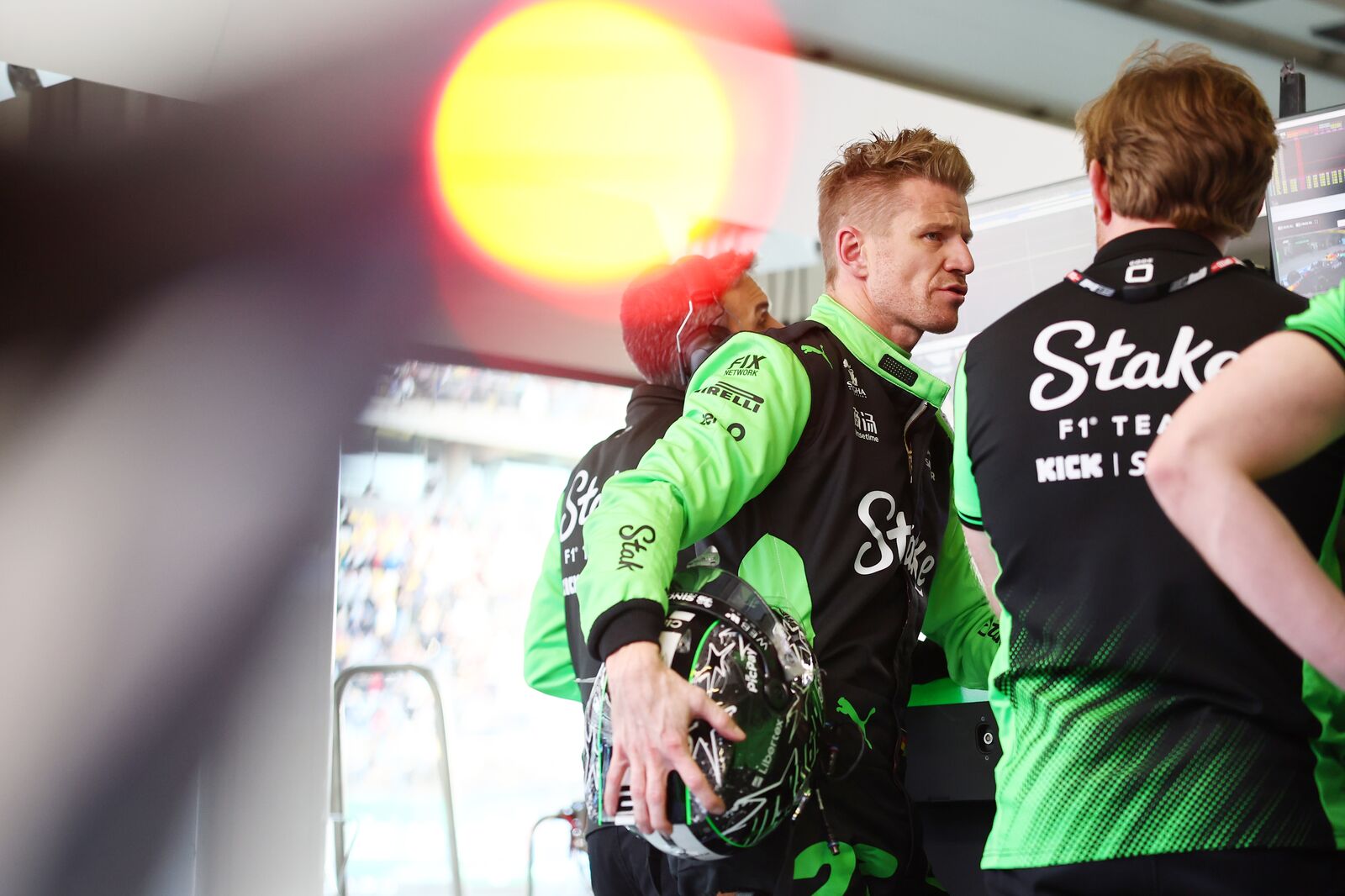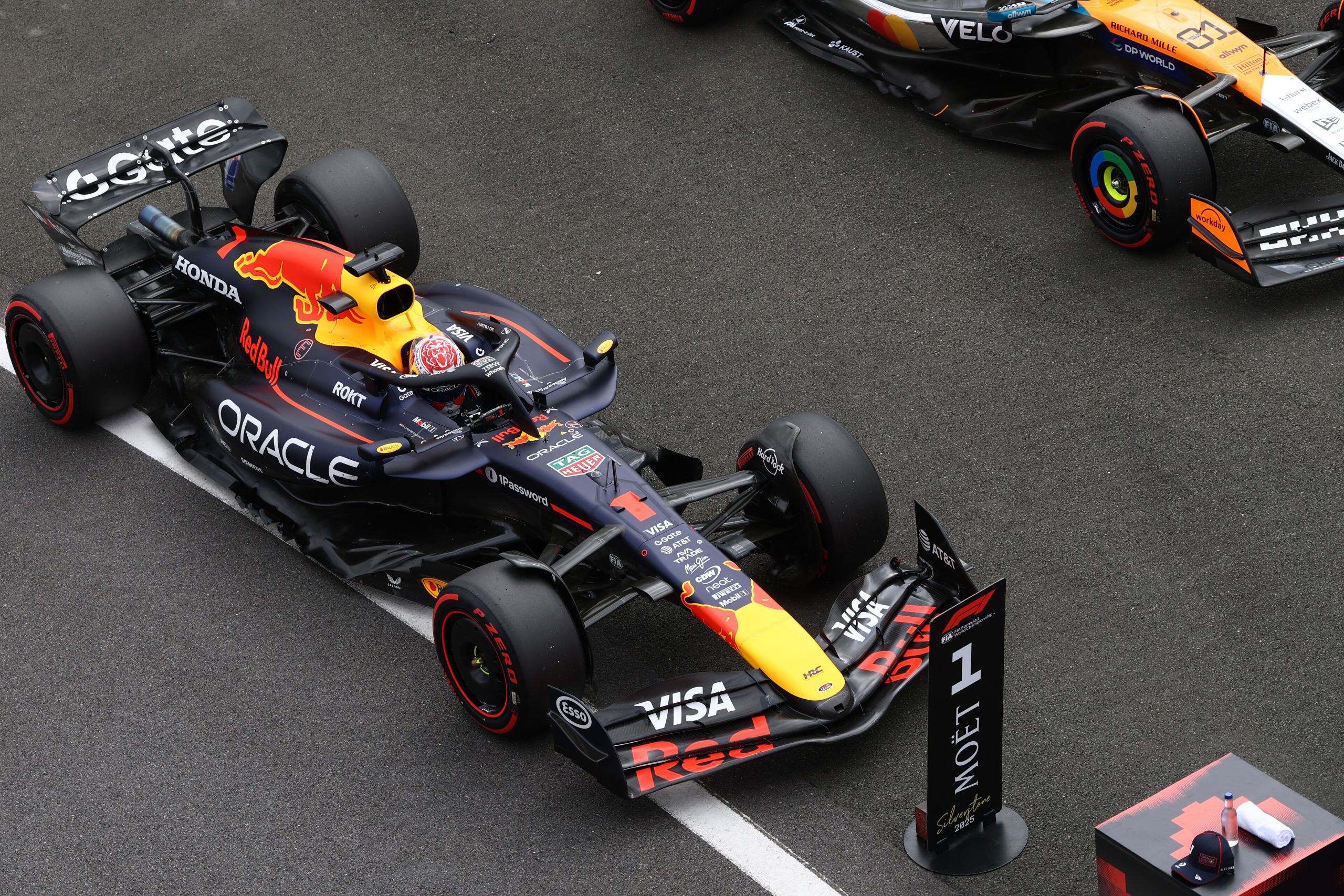Is Being An F1 Engineer Stressful?


Working as an engineer for a Formula 1 team is indeed very stressful. The pressure to perform is high, as engineers operate in an environment where every millisecond is pivotal to the team’s success. This stress arises from various factors like the necessity to constantly innovate, relentless travel, the unpredictability of race outcomes, and extended work hours, especially during the race season.
F1 engineers are required to maintain a sharp focus and deliver under what can often be extreme conditions. Communication needs to be precise, decisions are time-sensitive, and the margin for error is minuscule. The workload intensifies as the race weekend approaches, and during the event, real-time problem-solving skills are paramount.
While compensation for an F1 engineer is competitive and can reflect the demanding nature of the job, it may not always align with the lengthy hours and high-stress levels associated with the position. Salaries vary widely and depend on the engineer’s experience, role within the team, and the resources of the employing team. Despite stress and the demanding pace, for many, the thrill of motorsport and passion for engineering justify the personal investment in this career.
Role of an F1 Engineer
The role of an F1 engineer encompasses both the design and development of racing vehicles and the real-time strategy and decision making necessary for success on the track. This section will explore these key responsibilities.
Design and Development
In the realm of design and development, F1 engineers apply their expert knowledge to the creation and refinement of Formula 1 cars. Their responsibilities include:
- Aerodynamics: Shaping the car to achieve minimal air resistance and optimal downforce.
- Materials Engineering: Selecting materials that offer the best combination of strength, weight, and durability.
- Vehicle Dynamics: Tuning suspension, brakes, and steering for maximum performance.
- Powertrain: Developing efficient and powerful engines and gearboxes.
- Innovation: Implementing new technologies to enhance car performance.
While the pressure to continuously evolve and improve the car is immense, engineers must also adhere to strict regulations set by the sport’s governing body.
Strategy and Decision Making
During race events, F1 engineers must make pivotal decisions quickly, directly affecting race outcomes. Their strategic role includes:
- Data Analysis: Interpreting telemetry and sensor data to make informed decisions.
- Race Strategy: Planning pit stops, fuel loads, and tire choices to adapt to changing race conditions.
- Communication: Working closely with the driver to adjust the car’s setup and address any issues.
- Problem-Solving: Reacting to unexpected events, such as mechanical failures or changes in weather.
The success of a race can hinge on the engineer’s ability to synthesize information and guide the team to react accordingly.
Work Environment and Pressure
Working in Formula 1 as an engineer entails navigating high-pressure situations and a fast-paced work environment. Precision and rapid decision-making are at the forefront of this demanding role.
Team Dynamics
Teams in Formula 1 consist of various specialists, each contributing to the overarching goal of performance and reliability. Effective communication is key, as engineers often work in groups to solve complex problems quickly. Stress levels can rise due to the intense collaboration needed to make split-second decisions that could have significant implications on the team’s success.
- Collaboration: Interdisciplinary teamwork under tight deadlines
- Communication: Clear and timely exchanges to ensure collective success
Race Weekend Intensity
During a race weekend, engineers experience heightened pressure. They must analyze data, make swift adjustments, and provide critical support during practices, qualifying sessions, and the race.
- Decision-Making: Immediate responses required to dynamic race conditions
- Data Analysis: Real-Time interpretation of complex data sets to inform decisions
Responsibilities include:
- Adjusting car setups based on driver feedback and track conditions
- Managing unforeseen issues, like weather changes or technical malfunctions
The environment is characterized by:
- Pace: High-speed adjustments with little room for error
- Stakes: High, as decisions can affect race outcomes and championship standings
Skills and Qualifications Required
The role of an F1 engineer is both prestigious and demanding, requiring a specific set of skills and qualifications to handle the high-pressure environment effectively.
Technical Expertise
In Formula 1 engineering, a strong foundation in mathematics and physics is essential. Mechanical engineers play a key role as they design and develop power-producing machines which include understanding the dynamics of racing vehicles. Prospective engineers often need a background in aerospace engineering, mechanical engineering, or a related field. Skills in computer science and proficiency with programming are also highly beneficial in managing the car’s sophisticated software systems.
- Core Subjects:
- Mathematics
- Physics
- Relevant Fields:
- Mechanical Engineering
- Aerospace Engineering
- Technical Skills:
- Computer Programming
- CAD Software Proficiency
- Data Analysis
Stress Management Techniques
An F1 engineer’s job can be highly stressful due to the fast-paced nature of the work and the extreme attention to detail required. Developing stress management techniques is vital for maintaining high performance under pressure. Skills in time management and problem-solving are critical to manage and prioritize tasks efficiently. An ability to remain calm under pressure and make quick, informed decisions is indispensable to cope with the dynamic challenges presented during race days and the development phases.
- Key Strategies:
- Time Management
- Problem-Solving
- Mental Resilience:
- Maintaining Calmness
- Quick Decision Making
Candidates aiming for a career in F1 engineering must pursue education and training that aligns with these specialized requirements and be prepared for the high-stress environment of Formula 1 motorsport.
Career Path and Progression
The journey to becoming a seasoned Formula 1 engineer involves overcoming initial challenges and continuously developing one’s career through experience and skill enhancement.
Entry-Level Challenges
At the start of an F1 engineering career, individuals face a competitive entry environment. Fledgling engineers must possess a strong educational foundation, usually a degree in mechanical or automotive engineering, and relevant experience, such as internships or involvement in collegiate racing projects like Formula Student. Early roles often involve rigorous demands:
- Intensity: High-pressure situations due to the fast-paced nature of the sport.
- Workload: Long working hours, especially during race weekends and leading up to key development phases.
Long-Term Career Development
As engineers advance, they can specialize in areas such as aerodynamics, engine systems, or data analysis. Progression typically requires:
- Continued Learning: Staying current with F1 technology and regulations.
- Experience: Building a portfolio of successful projects and innovations.
Promotions may lead to roles like lead engineer or technical director, with increased responsibility for strategic decisions and team leadership. The long-term success in this field is marked by adaptability, constant skill development, and the ability to perform under pressure consistently.
Physical and Mental Demands
Working as an F1 engineer involves a challenging combination of high stakes, vigorous precision, and exhaustive schedules that can affect both physical strength and mental resilience.
Work-Life Balance
F1 engineers face significant challenges in achieving a healthy equilibrium between their professional responsibilities and personal lives. The F1 calendar, with races spread across the globe, necessitates substantial travel and irregular working hours. This can lead to long periods away from home, contributing to a work environment that demands a flexible approach to personal time management.
- Travel Frequency: High
- Hours: Often extended
- Personal Time: Limited due to a demanding schedule
Coping with Failures and Success
In the competitive world of Formula 1, engineers must develop strategies to manage the pressures of success and the possibilities of failure. They are tasked with making split-second decisions that can have major implications on the race outcome and the team’s performance.
- Decision-making: High-pressure, with immediate consequences
- Failure: Must maintain composure and learn from setbacks
- Success: Must capitalize on momentum while remaining grounded and focused
How many hours does an F1 engineer work?
F1 engineering is known for its demanding work schedule, especially during the racing season. Based on discussions from individuals in the industry, it’s not uncommon for F1 engineers to work extensive hours.
Weekly Working Hours
F1 engineers often work more than the standard 40-hour work week. During periods of intense activity, such as wind tunnel testing or the lead-up to race weekends, working hours can extend significantly. Anecdotal evidence suggests that 50-60 hour weeks are the norm, and during particularly busy periods, these hours can increase to around 90 hours a week. This level of commitment can lead to burnout and is a testament to the high-pressure environment of Formula 1 engineering.
Work During Race Weekends
Race weekends are particularly intense. Engineers are required to be on top of their game, often working long hours to ensure the car’s performance is optimized. This can include pre-race preparations, qualifying sessions, and post-race analyses, all of which contribute to a substantial increase in working hours.
Off-Season Workload
Even during the off-season, F1 engineers are hard at work developing the next season’s car. This period involves a lot of design, testing, and iteration, which can also lead to long working hours, although they may not be as intense as during the racing season.
The workload of an F1 engineer is heavy, with long hours being a common aspect of the job. The passion for the sport and the drive to succeed often propel engineers through these demanding periods.
Is F1 Engineering Hard?
F1 engineering is considered one of the most challenging and competitive fields within engineering. The complexity of the job is due to a combination of factors, including the technical demands, the fast-paced environment, and the pressure to perform.
Technical Challenges
F1 cars are highly sophisticated machines, and engineering them requires a deep understanding of various complex systems. Engineers must have expertise in aerodynamics, materials science, thermodynamics, and many other fields to design and optimize a car that can compete at the highest level. The engineering problem posed by F1 cars involves hundreds of parts that must be designed to work together perfectly.
Fast-Paced Environment
The world of Formula 1 is incredibly fast-paced. Engineers must constantly develop and apply new technologies to gain a competitive edge. This requires not only a high level of innovation but also the ability to work under tight deadlines. The rapid development cycles mean that F1 engineers are always on their toes, trying to outdo their rivals with technological advancements.
Pressure to Perform
There is immense pressure on F1 engineers to deliver results. The performance of the car directly impacts the success of the team, and engineers are responsible for making sure that the car is reliable and performs at its best at all times. This pressure can be stressful and demanding, as highlighted by insights from industry professionals on platforms like Reddit.
Continuous Learning and Adaptation
F1 engineering requires a commitment to continuous learning and adaptation. With regulations and technologies constantly evolving, engineers must keep up-to-date with the latest advancements and be ready to apply them effectively. The learning curve can be steep, and staying ahead in the game is a relentless pursuit.
What is it Like to Work as an Engineer in F1?
Working as an engineer in Formula 1 is a unique experience that combines high-pressure situations with the thrill of motorsports. The role is multifaceted, involving a range of duties and requiring a specific skill set.
Duties of an F1 Engineer
Vehicle Development and Setup
An F1 engineer is heavily involved in the development and setup of the race car. This includes designing car components, running simulations, and conducting wind tunnel tests to optimize aerodynamics and performance. On race weekends, engineers work on fine-tuning the car setup based on the track conditions and the drivers’ feedback.
Data Analysis
One of the critical duties is analyzing data collected during practice sessions, qualifying, and races. Engineers look at telemetry data to assess the car’s performance and identify areas for improvement. This data-driven approach helps in making informed decisions about strategy and car adjustments.
Pit Stop Strategy
Engineers also play a vital role in formulating and adjusting pit stop strategies. They must calculate the best times to pit and decide on tire choices, taking into account the car’s performance, weather conditions, and the race’s progress.
Team Collaboration
Working in F1 requires close collaboration with the rest of the team, including mechanics, aerodynamicists, and the drivers. Engineers must communicate effectively to ensure that everyone is aligned with the car’s development and race strategy.
Skills Required for an F1 Engineer
Strong Technical Knowledge
A deep understanding of mechanical and automotive engineering principles is crucial. Engineers must be adept at applying these principles to solve complex problems and improve the car’s performance.
Analytical Skills
F1 engineers must possess excellent analytical skills to interpret the vast amounts of data generated by the car and translate them into actionable insights.
Adaptability
The ability to adapt to new technologies, regulations, and challenges is essential. Engineers must be flexible and innovative, constantly seeking ways to gain a competitive edge.
Communication
Effective communication is key in the fast-paced environment of F1. Engineers must be able to convey complex technical information clearly to the team and work together towards common goals.
Resilience and Stress Management
The high-pressure nature of F1 can be mentally taxing. Engineers must be resilient and capable of managing stress to maintain focus and performance under demanding conditions.
Working as an F1 engineer is a demanding but rewarding experience. It involves a combination of technical expertise, strategic thinking, and teamwork, all taking place in the exhilarating world of professional motorsports. The role is suited for those who thrive in dynamic, competitive environments and are passionate about pushing the boundaries of engineering.
Are F1 Race Engineers Actually Engineers?
Yes, F1 race engineers are indeed engineers by profession. They typically have extensive education and training in engineering disciplines relevant to motorsport.
Educational Background
F1 race engineers usually start their careers with a strong foundation in engineering, often holding a bachelor’s degree in mechanical, automotive, or aeronautical engineering. Many go further to obtain master’s degrees or other advanced qualifications to specialize in areas directly applicable to F1 racing.
Engineering Expertise
The role of a race engineer in F1 involves applying engineering principles to design, develop, and optimize the performance of a Formula 1 car. They must understand the car’s mechanics, aerodynamics, and electronics deeply to make informed decisions about its setup and strategy.
Professional Responsibilities
F1 race engineers are responsible for a variety of engineering tasks, including:
- Working with complex simulation tools to predict car behavior.
- Analyzing telemetry data to assess car performance and identify potential improvements.
- Collaborating with the drivers to understand their feedback and translate it into technical adjustments.
- Developing strategies for car setup, race strategy, and pit stops.
Recognition as Engineers
The engineering community and professional bodies recognize F1 race engineers as legitimate engineers. Their work requires a high level of technical skill, problem-solving ability, and innovation, which are hallmarks of the engineering profession.
In summary, F1 race engineers are actual engineers with specialized education and skills tailored to the high-octane world of Formula 1 racing. Their work is critical to the success of their teams and drivers, and they are an integral part of the engineering field.
Are There Any Female F1 Engineers?
Yes, there are female engineers working in Formula 1, and their presence and influence in the sport have been growing. Women have been making significant strides in what has traditionally been a male-dominated field, taking on roles ranging from design and development to trackside engineering.
Prominent Female F1 Engineers
- Hannah Schmitz is a notable example, serving as a principal strategy engineer at Red Bull Racing. She has been recognized for her role in pivotal race strategies that have contributed to the team’s successes (Females in Motorsport).
- Ruth Buscombe has made her mark as a senior strategy engineer, and is now the Head of Race Strategy at Sauber.
- Amelia Lewis is a performance engineer with McLaren Racing, contributing to car performance and data analysis, and is part of an increasing number of women in technical roles within the sport (Sports Illustrated).
The Growing Presence of Women in F1 Engineering
The inclusion of women in F1 engineering roles is part of a broader movement to encourage diversity in STEM fields, including motorsport. Initiatives and programs aimed at inspiring and supporting women to pursue careers in engineering have helped increase their visibility and representation in Formula 1.
Challenges and Progress
While there is still progress to be made in achieving gender parity in F1 engineering, the women currently in the field are paving the way for future generations and proving that engineering excellence knows no gender. Their contributions are being recognized, and they serve as role models for aspiring female engineers looking to break into the world of high-performance motorsport engineering.
How Many F1 Engineers Are There?
The exact number of engineers in Formula 1 can vary from team to team and is not typically disclosed in specific terms to the public. However, for each Formula 1 car, there is a team of five essential engineers, each specializing in a critical aspect of the vehicle’s performance and operation. These positions include the Race Engineer, who oversees the car’s race strategy and communicates directly with the driver; the Performance Engineer, responsible for analyzing data to optimize the car’s speed and handling; the Controls Engineer, who focuses on the car’s electronic systems, including software and sensors; the Engine Performance Engineer, tasked with maximizing the power and efficiency of the power unit; and the Engine Systems Engineer, who ensures the reliability and functionality of the engine’s various systems.
Team Staff Composition
An F1 team is made up of several departments, such as aerodynamics, electronics, powertrain, simulation, and race strategy, each staffed with multiple engineers. For example, a comprehensive engineering team might include design engineers, aerodynamicists, data analysts, software engineers, systems engineers, and more.
Estimated Numbers
An estimate suggests that a mid-sized F1 team could employ anywhere from 150 to 300 engineers, while larger teams with more resources might have even more on their staff. It is important to note that these numbers can fluctuate based on the team’s size, budget, and approach to car development and race strategy.
Industry Employment
The F1 industry, as a whole, employs many engineers, with numbers reaching into the thousands when considering all ten teams on the grid. For instance, a recent report on the F1 industry mentioned that around 5,600 British people were actively looking for jobs in F1, which gives an indication of the interest and potential employment scale within the UK alone, a country known for its strong presence in the motorsport industry.





